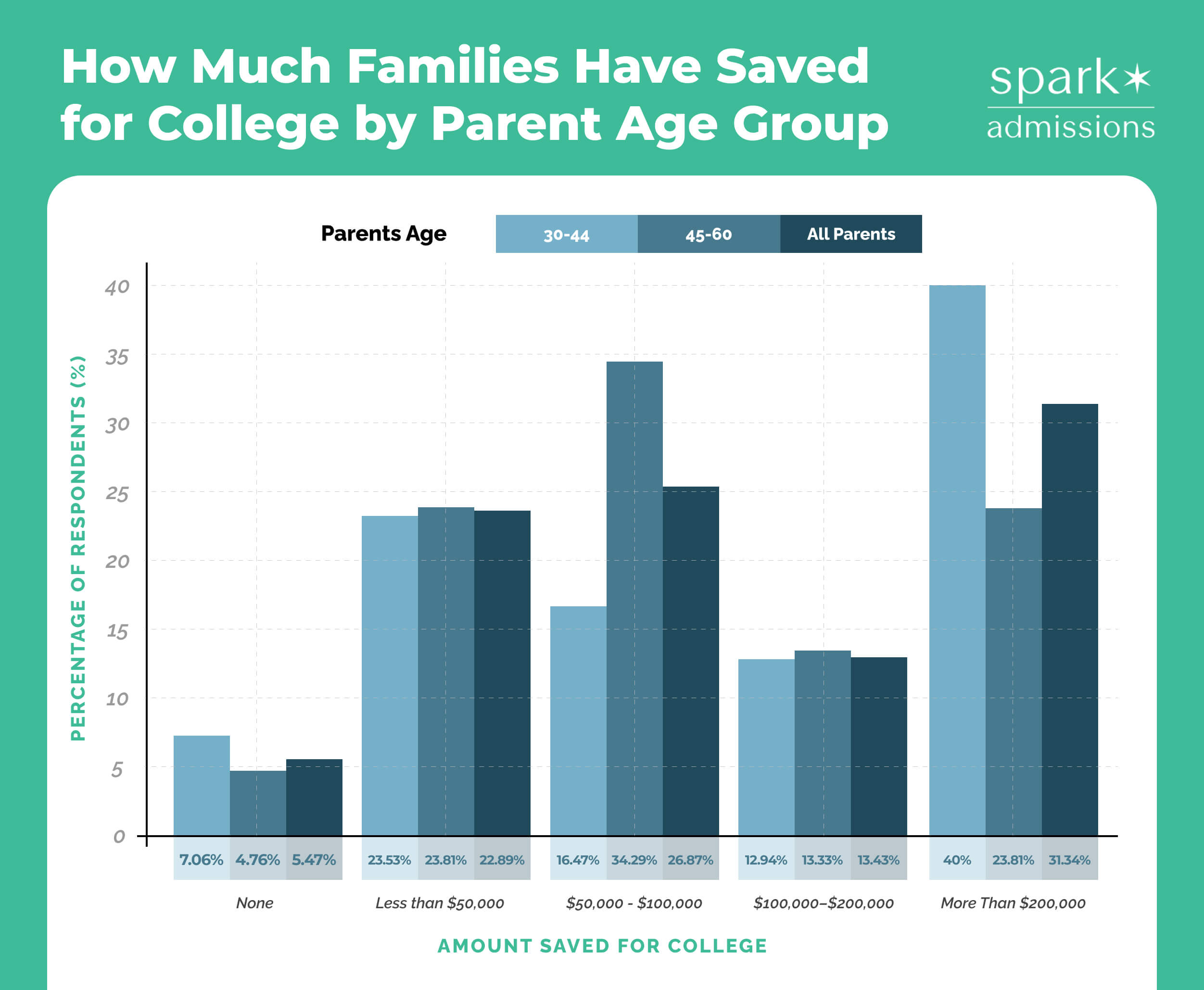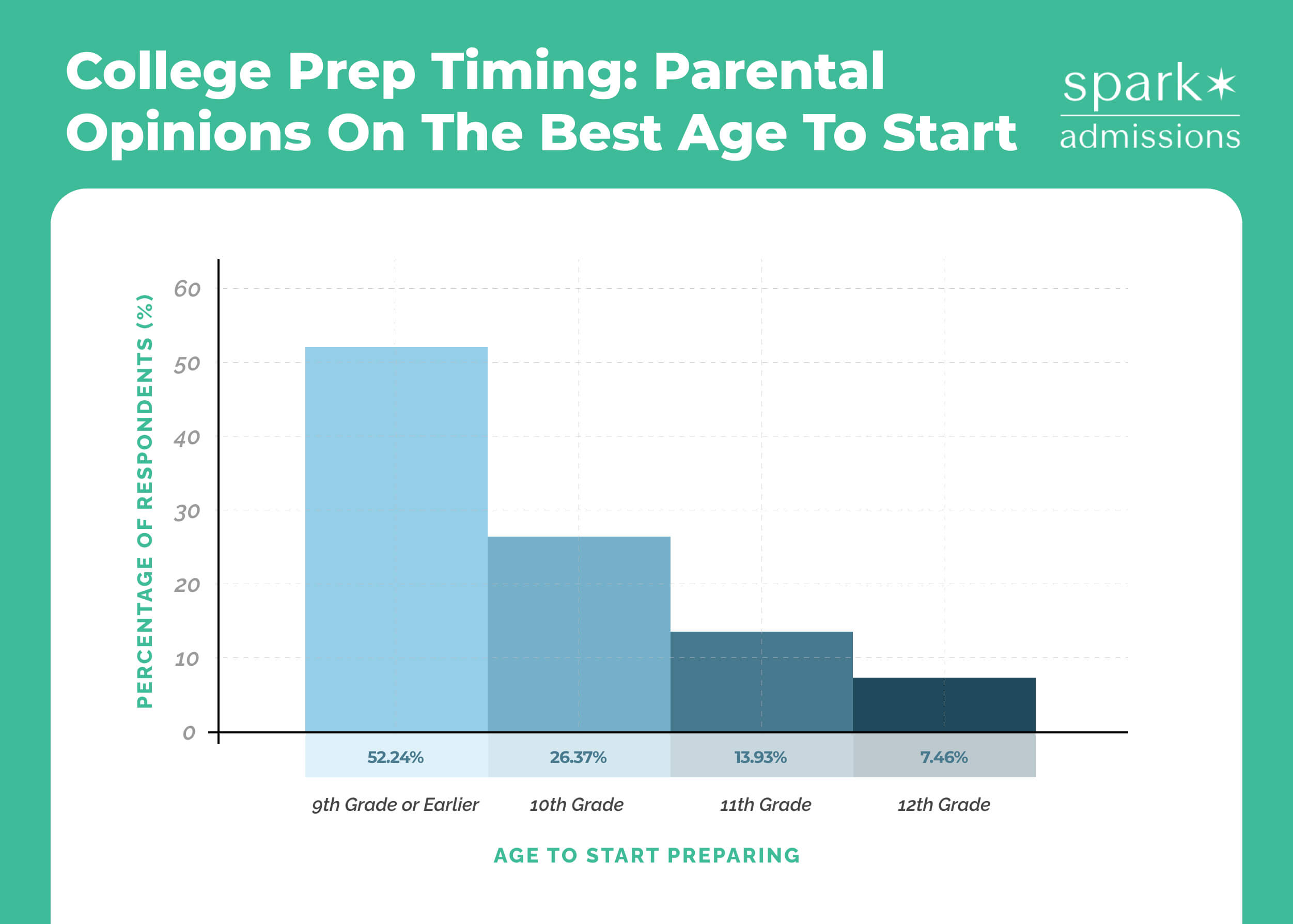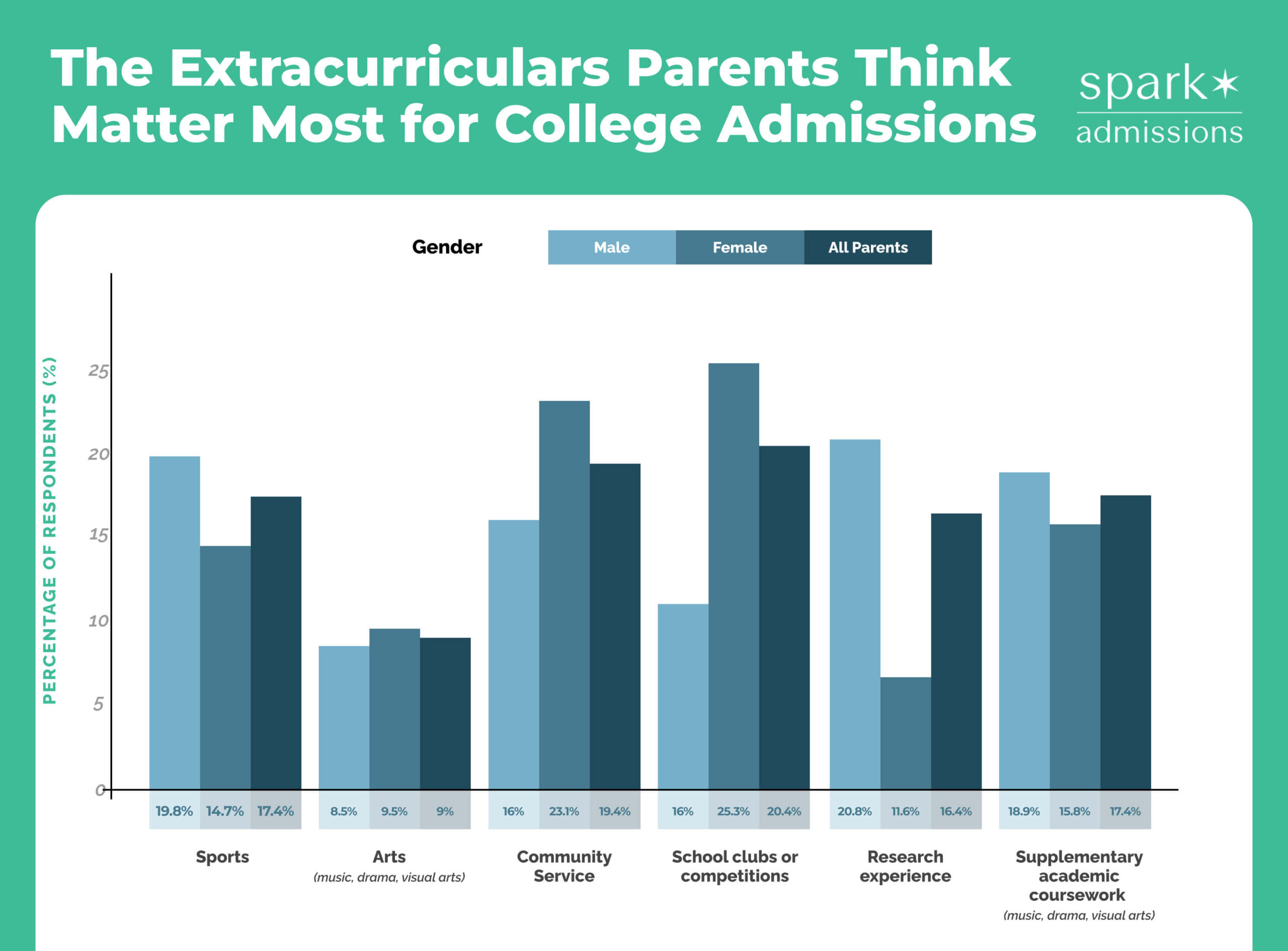- Blog
- > College Admissions
What Higher-Income Parents Think About College Admissions (Insights from a New Survey)
- Dr. Rachel Rubin
- | February 7, 2025
As the college admissions process continues to grow increasingly complex, higher-income families are navigating a landscape filled with financial dilemmas, mounting stress, and a shift toward earlier preparation.
We surveyed 200 parents with household incomes over $200,000 and children aged 13 to 17, revealing surprising insights into the priorities and concerns of these families. Despite their relatively strong financial standing, these families still face difficult decisions about how early to start planning for college, how to navigate financial constraints, and how to support their children’s well-being in a system that demands so much from teens.
The Financial Paradox For Higher-Income Families

One of the most striking findings is the financial strain felt by families who earn too much to qualify for need-based aid but still struggle with the soaring cost of higher education. While 31.9% of all respondents have already saved over $200,000 for their child’s college education, a significant portion—38.8%—cite navigating financial planning and affordability as one of the most challenging aspects of the admissions process.
For families in this income bracket, the dilemma is clear: they earn too much to benefit from traditional financial aid programs, yet the cost of a four-year education—often exceeding $350,000 per student at private institutions—presents a significant, and often crippling, burden.
Moreover, 27.4% of respondents identify securing scholarships or financial aid as a top challenge, illustrating a gap in accessible financial resources for higher-income but non-ultra-wealthy families.
Compounding this financial strain is the disparity in savings habits. Interestingly, only 5% of surveyed families have not saved anything for college. Meanwhile, 44.7% of parents have saved or expect to save $100,000 or more. Moreover, those with graduate degrees are notably more likely to have saved over $200,000, suggesting that personal educational experiences influence financial planning strategies.
The Rise of Early College Planning

The survey also highlights a growing trend toward early college preparation, with over 50% of parents stating that they started planning—or wish they had started planning—in 8th or 9th grade. This is notably earlier than conventional guidance, which normally starts the college preparation process in 11th grade for fear of overwhelming younger students.
Parents of students interested in specialized schools—such as those focused on STEM, business, or the arts—place an even greater emphasis on early preparation. Many believe that extracurricular activities like supplementary academic coursework, school clubs, and research experience have the most significant impact on admissions. As a result, middle school is no longer just about foundational education; for many families, it has become the starting point in the college race.
The Emotional Toll: Stress and Anxiety in the Admissions Process
Beyond finances and planning, the emotional weight of the admissions process is palpable. 42.79% of parents identify balancing academics, extracurricular activities, and personal well-being as one of the most challenging aspects of the process. Another 26.5% cite managing stress and anxiety—theirs and their child’s—as a major struggle.
The high stakes of college admissions have turned the process into a pressure cooker, not only for students but for entire families. The desire to secure a spot at a prestigious university, coupled with uncertainty around the ever-evolving admissions landscape, creates a cycle of anxiety. Parents worry about their children’s futures, while students feel the weight of expectations—both their family’s and their own.
Interestingly, the survey found differences in stress perception by age group. Younger parents (ages 30-44) find financial planning and affordability the most difficult aspect, whereas older parents (ages 45-60) struggle more with balancing academics, extracurriculars, and well-being. This generational shift underscores changing priorities as families move through different stages of their child’s educational journey.

Additionally, gender plays a role in parents’ attitudes toward college admissions. Women are more likely to value school clubs and community service, while men prioritize research experience and sports as the most valuable extracurricular activities. Similarly, men are more likely to emphasize college rankings (14.15%) than women (3%), showcasing a divide in how parents assess college choices.
A Changing Landscape
As these findings illustrate, higher-income families are far from immune to the financial, emotional, and strategic challenges of college admissions.
While 71% of parents are aware of college admissions consultants, their willingness to invest in these services varies—22% of women prefer to invest $5,000 – $20,000, while 30% of men are open to investing over $20,000. This signals a growing recognition of the need for expert guidance, even among families with advanced academic credentials.
These challenges don’t come with easy solutions. However, they shed light on the realities that many parents face behind the scenes. The college admissions process is evolving—and for today’s families, understanding these complexities is the first step in navigating them.


